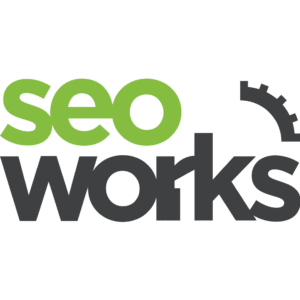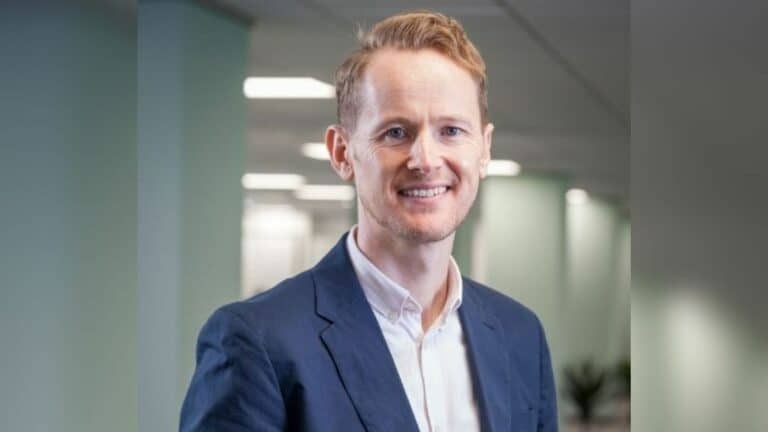Ben Foster is CEO at The SEO Works, ranked as one of Prolific North’s Top 50 Digital Agencies for 2023.
Foster joined the Sheffield agency with over 15 years of client-side and agency-side experience. Previously managing director, he was appointed as CEO last year where he is now responsible for the overall success of the business, including the vision, mission, direction and overall strategy.
From how he first entered the industry to his luckiest break, Foster shares his career journey and words of advice.
How did you first get into your industry?
I was always interested in computers and media as a kid, so I decided that I wanted to study a media-related degree at university. I chose a course that offered a blend of theory and practical learning.
I had really enjoyed creating websites and 3D animation as part of the degree, so I applied for a bunch of roles in that area. I was fortunate enough to get an interview for the first job I applied for, which was a web designer for PlusNet (the broadband provider). My portfolio of practical work I think was key to getting the interview.
I was even more amazed when I was offered the job. It began the September after graduation, so I packed up my things and moved to Sheffield, not knowing anyone there. Sheffield is a great city and it’s where I have remained!
What do you love about your job?
I love working in this field as it’s fast-moving, so you are constantly learning. Being able to measure the impact we have on our client’s digital growth is very rewarding. You know that you are helping other people and businesses in their success, which is a great feeling to have.
Growth and improvement is what drives me. We regularly review how we do things, and work on small but continual improvements. By doing this it’s amazing how you can evolve a business and become even better at what you do. I love seeing talented people come together, grow with their own development, and create work that they are proud of.
Who – or what – has inspired you in your career?
I have taken inspiration from many things in my career – from athletes to business owners to past managers. I’m also an avid reader and one book that has stuck with me was “Man’s search for meaning” by Viktor Frankl. If you want perspective then give this a read. It makes you realise that no matter the situation, there is always someone better off and also worse off than you. It also makes you realise that with the right kind of purpose in your life, you can do pretty much anything.
What are the biggest challenges about your job?
There are always challenges, and the challenges are varied. You need to try and keep an objective view on things and try to assess the things you face with balance. There will be ups and downs, and how you deal with both is really important. As Rudyard Kipling says… “”If you can meet with Triumph and Disaster, and treat those two impostors just the same”.
Work/life balance is really important – without the right balance you can lose sight and actually become less effective in the business. I have ground rules – such as keeping a work and business phone separate, and leaving my work phone on the side at the end of a day. Making sure you get out and get some exercise each week. Make sure that holidays are taken and that work is 100% avoided during that break. Also acknowledging that there will be times of the year when you will need to work more, but not making that the ‘norm’.
What skills have been the most crucial to you succeeding in your career so far?
I have always worked in roles where you are empowered to own your work, so an ability to self-learn and work out stuff as I go along has been important. You don’t know everything but can generally learn enough of it by speaking to the right people or researching online.
Unpicking sometimes complex challenges into their component parts to help create solutions has been essential. Commercial awareness and context has always been important.
The ability to flex your style to work with different personality types helps too. Ultimately in any role you will need to be able to get along with and influence a wide range of people, and articulating things in a way that clicks with them is valuable.
What was your first salary and what could someone getting into the industry expect to earn nowadays?
My first wage was £16k per annum and it took a good while to move beyond that! Entry-level applicants now are probably in the region of £21-23k per annum, depending on role and location.
What education or training would be most useful for someone looking to follow your career path?
For students looking for jobs in media / advertising and marketing I would say that having some practical experience in the area is very important. You will stand out as a potential employee if you have examples of work and experience (especially with digital). This makes a massive difference in this sector, when compared with a student who has just theoretical knowledge.
So if you are doing a degree, make sure it has some practical/production elements to it. But you don’t need a degree to get into this sector! There are plenty of free online training courses you can do, and setting up your own website will give you somewhere you can experiment.
It’s not just about the practical skills, though. Try and find opportunities to get out of your comfort zone and develop your people and communication skills – like joining a sports or hobby club, or working in a people-facing services role such as retail or hospitality.
What advice would you have for someone looking to follow your path?
My advice to anyone in their career is to focus on being the best you are at what you are doing right now. Having a strong work ethic is really important – turning up each day and being consistent in applying yourself leads to incremental gains.
Spend time thinking about what your personal values are. If you work hard and have the right attitude, opportunities will come along that will help you continue to develop the tools and skills that continual progress needs. Be patient – things don’t happen overnight. And you will make mistakes, these are often the biggest part of personal growth. The key part is to make sure you take time to reflect on and take learnings from them.










